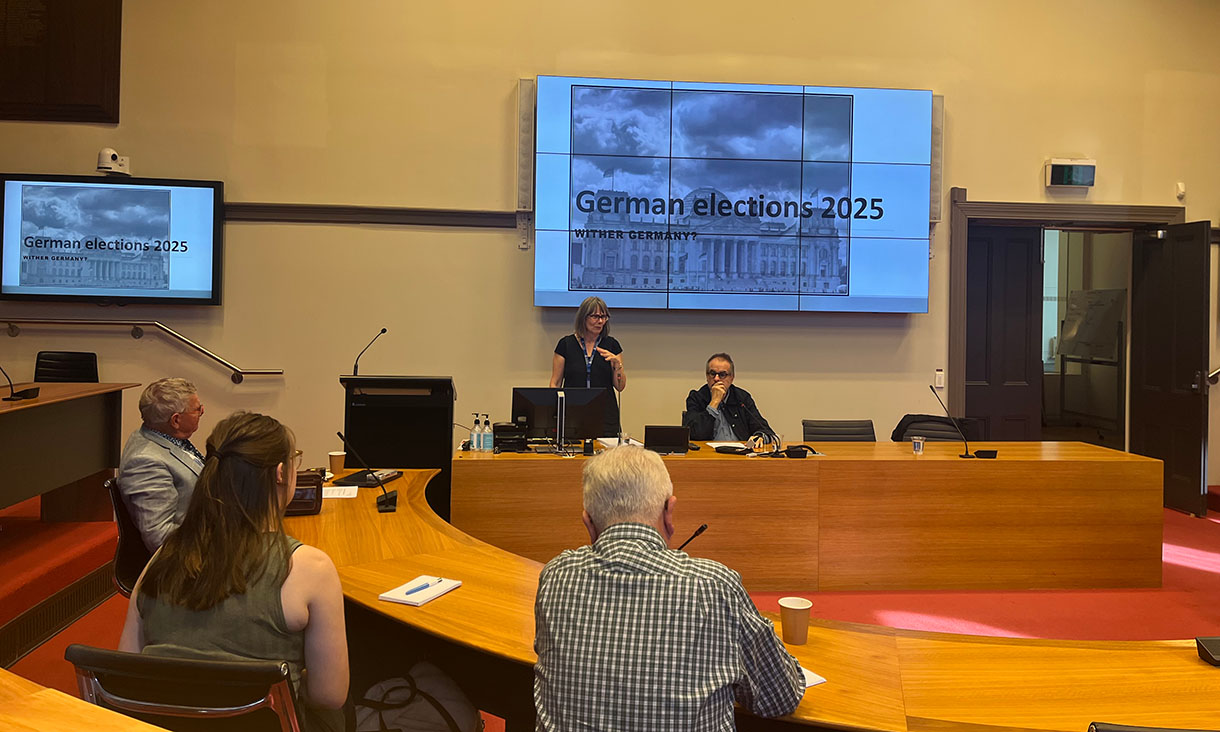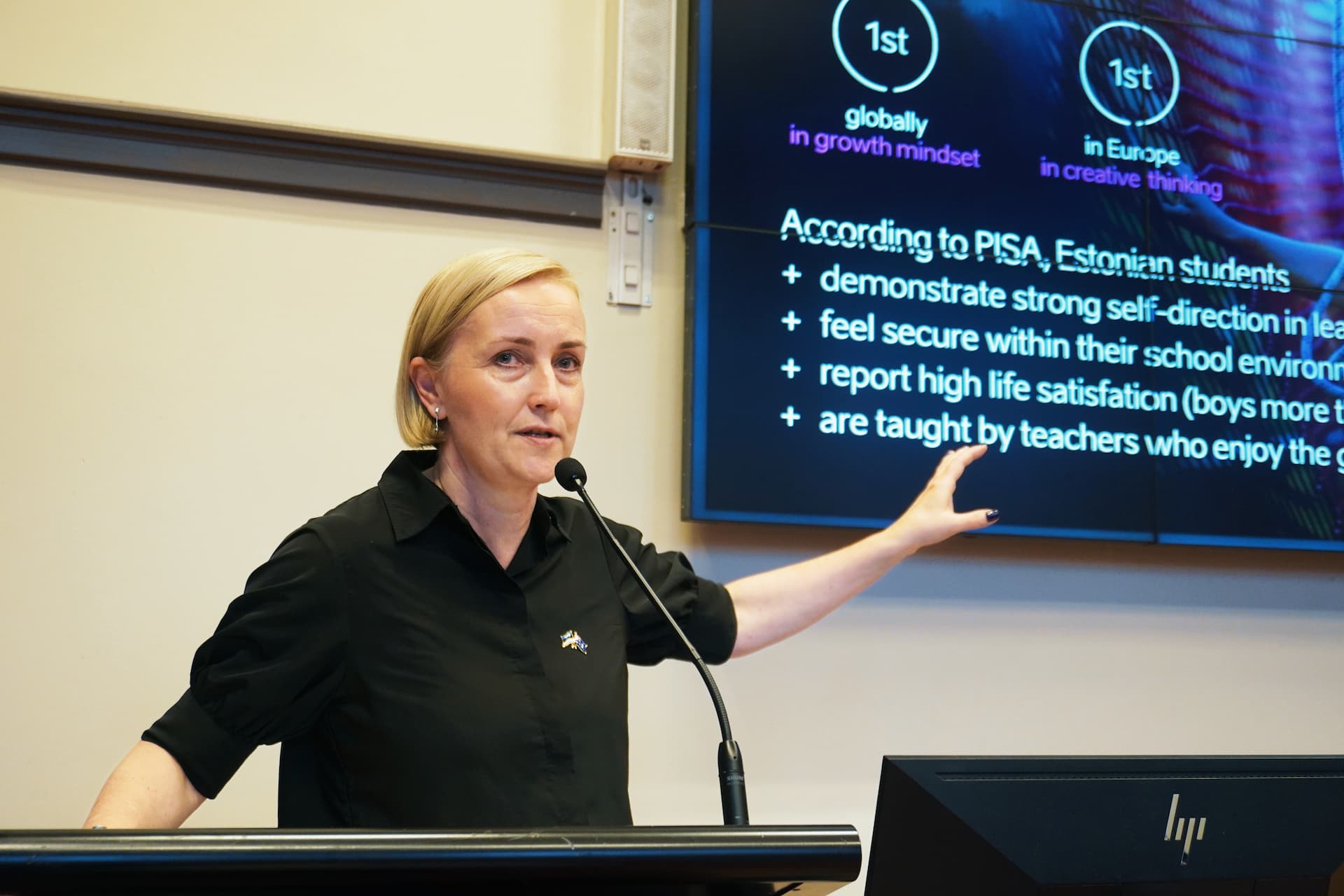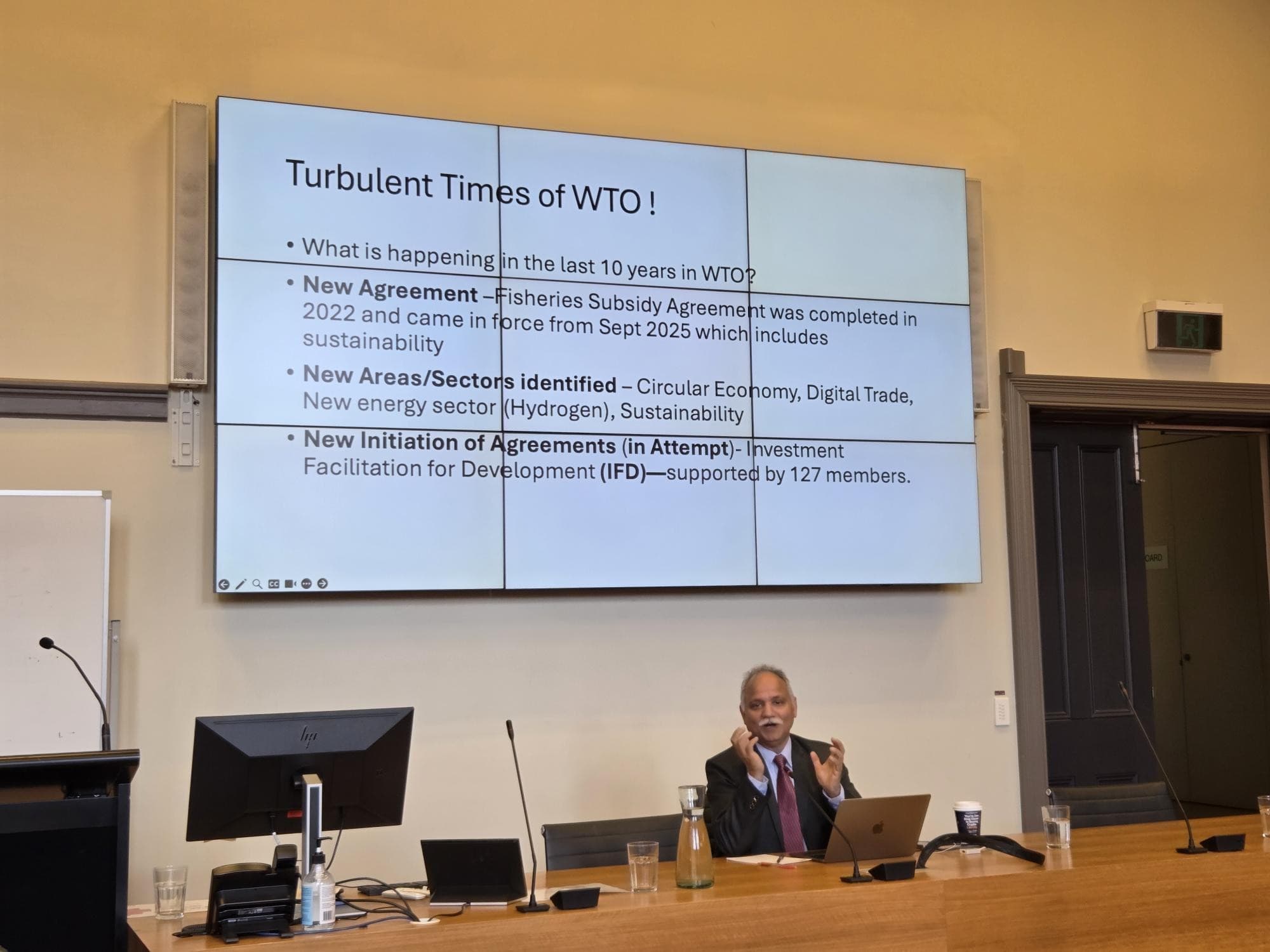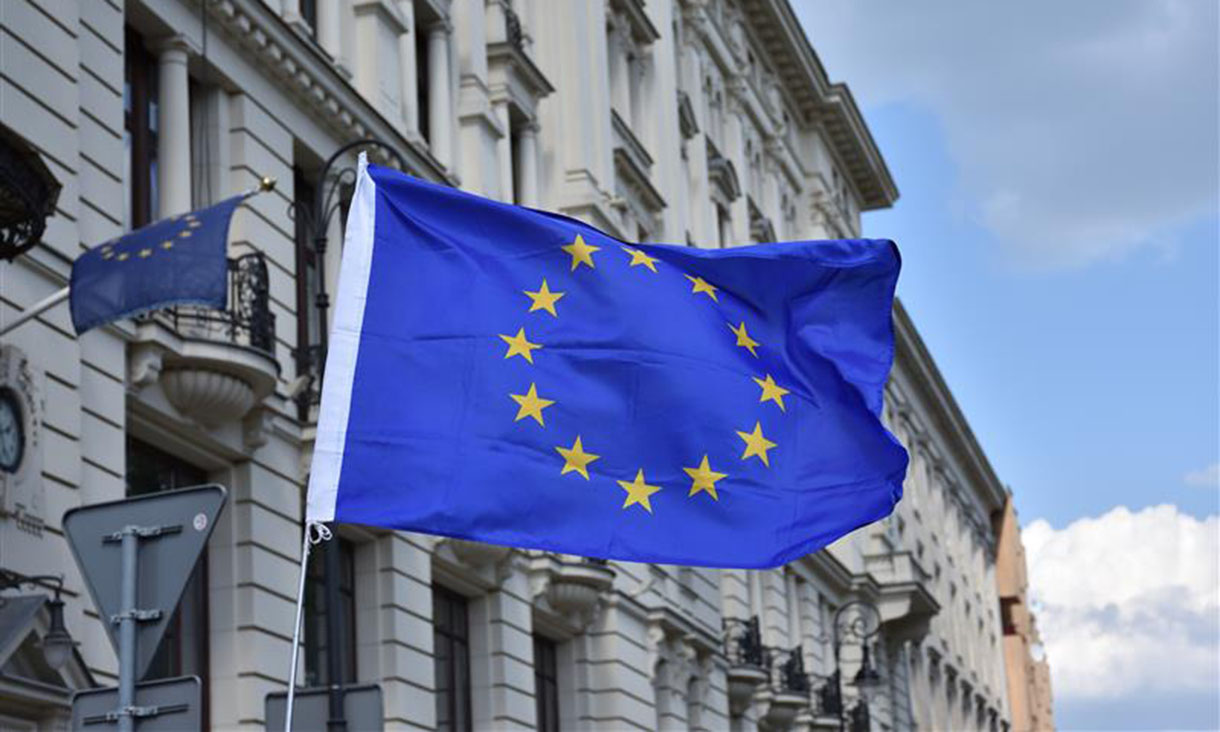2026 So Far | Global Trade Activity Builds Momentum for the EU–Australia Free Trade Agreement
As the rules-based order faces threats from today’s geopolitical volatility, trade in 2026 has become a strategic mechanism to build bilateral relations and strengthen stability.
Redefining Education: Harnessing AI for Cognitive Growth | Lecture by Kristina Kallas
On Thursday 27 November 2025, the EUATRAN Centre had the privilege of hosting a public lecture delivered by Dr Kristina Kallas, the Estonian Minister of Education and Research.
‘The WTO is alive; it’s not dead’: seminar presents positive note on the future of multilateralism
On Tuesday 14 October, the European Union and Australia Trade Relations and Ambitious Negotiations (EUATRAN) Centre at RMIT held its third and final panel for 2025, The European Union and World Trade Organization: Turbulent Times.
2025 Europe Day Celebration
RMIT will be hosting Europe Day again this year to commemorate the progress made over the last 75 years in the development of the European Union.








